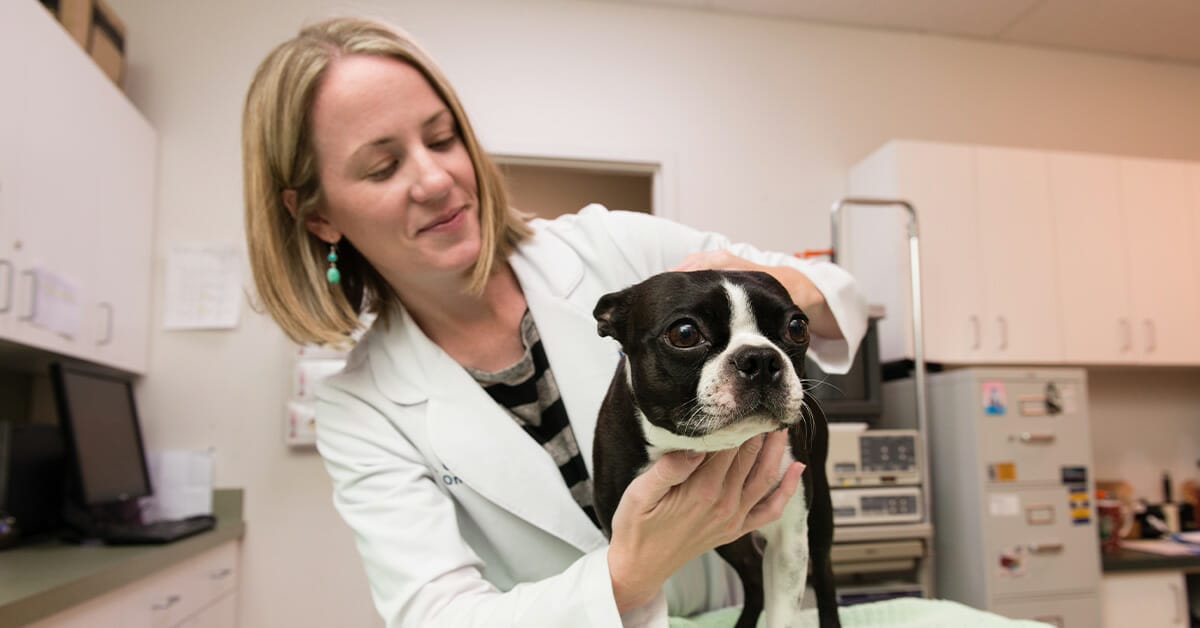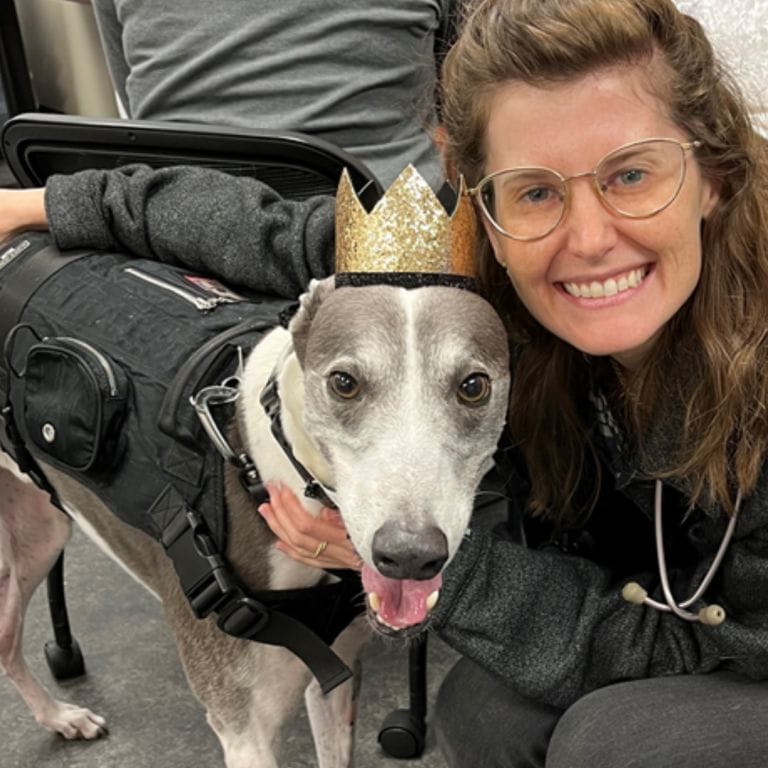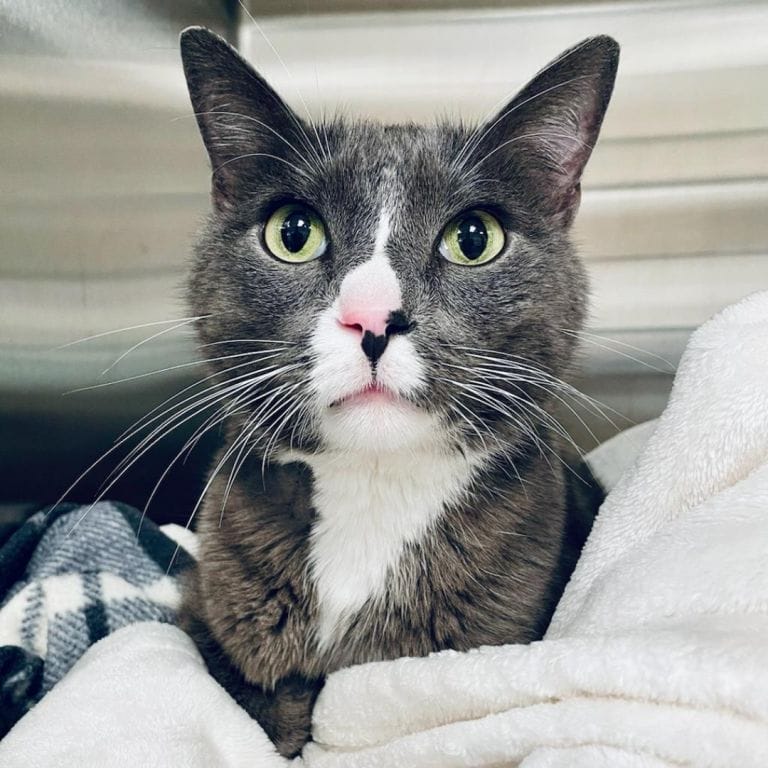
Lymphoma in Dogs and Cats
Lymphoma is the most common cancer to affect both dogs and cats. Learn the signs and how it’s treated.
Lymphoma is the most common cancer to affect both dogs and cats. The origin of the cancer is similar in that it arises from a type of white blood cell called the lymphocytes. Lymphocytes typically function as part of the immune system and circulate throughout the body. Lymphoma may affect one organ in the body (skin) or affect multiple parts of the body in both dogs and cats. However, lymphoma often behaves in different ways in each species.
Lymphoma in Dogs
The most common presentation of lymphoma in dogs leads to enlargement of lymph nodes. You may notice a new lump under your dog’s neck, under their belly, or behind the knees. Often dogs with lymphoma feel well at home. However, some dogs exhibit clinical signs including changes in breathing, increased drinking/urinating, or decreased appetite with weight loss. The most common form of lymphoma can also affect other organs including the spleen and liver.
The extent of other organ involvement for lymphoma relates to the stage. Your medical oncologist may recommend additional diagnostic testing to determine the stage, including an ultrasound and chest X-rays, to determine the stage for your pet.
Lymphoma in Cats
In contrast, the most common location for lymphoma to develop in cats is the intestinal tract. Your cat may suddenly show signs of illness including loss of appetite, weight loss, vomiting, or diarrhea. Similar to dogs, other organs may be involved. Therefore, you may notice other signs including changes in breathing or lumps/bumps on the skin. Some cats can develop a more chronic form of lymphoma which is often diagnosed after months or longer of intermittent vomiting, diarrhea, or weight loss.
Lymphoma Treatment
The commonality among dogs and cats with lymphoma is the treatment of chemotherapy and the goal of remission. Because lymphocytes normally travel throughout the body, lymphoma is a systemic disease. Surgery to remove enlarged lymph nodes or affected organs is therefore unlikely to control the cancer so instead we turn to chemotherapy as the primary treatment. Although chemotherapy can be an intimidating prospect, our patients tolerate chemotherapy much better than humans do. It is important to note; our pets typically do not lose their hair with chemotherapy!
Unfortunately, most patients cannot be cured of their lymphoma and our goal is remission. An indication of remission is the return to normal size of lymph nodes and overall improvement in how your dog or cat feels. Our goal is to improve their quality of life while undergoing chemotherapy treatment. Remission can mean our pets experience extended survival with regression of their cancer for months or even years. We resume chemotherapy once there is evidence that lymphoma is progressive, usually demonstrated by the return of lymph node enlargement or other clinical signs.
If you notice a new lump or bump on your dog, or sudden signs of illness in your cat, it is most important to have them assessed by your primary veterinarian. If your dog or cat is diagnosed with lymphoma or cancer in general, the oncology team at MedVet is available to help you navigate the diagnosis and mitigate your concerns in moving forward with treatment for your four-legged family member.
Meet Some Cancer Fighters

Dorian came to MedVet with extremely enlarged lymph nodes. He underwent treatment and is still in a complete remission!

Mr. Meowgi is a true cancer fighter. He completed an initial chemotherapy, came out of remission, and has restarted chemotherapy. Mr. Meowgi is in remission again.

Hudson was diagnosed with lymphoma in November 2021. He is in a second remission and still feeling great. He celebrated with a canine-safe cake made by his Alexis, his oncology technician at MedVet Mandeville.

Tom was hospitalized prior to his diagnosis due to how sick he was from his cancer. However, he is now undergoing chemotherapy for his lymphoma which has helped him gain weight and returned to his active and playful self.
FAQs
What is lymphoma in cats and dogs?
What are the signs of lymphoma in cats and dogs?
How is lymphoma in cats and dogs treated?
Contents


